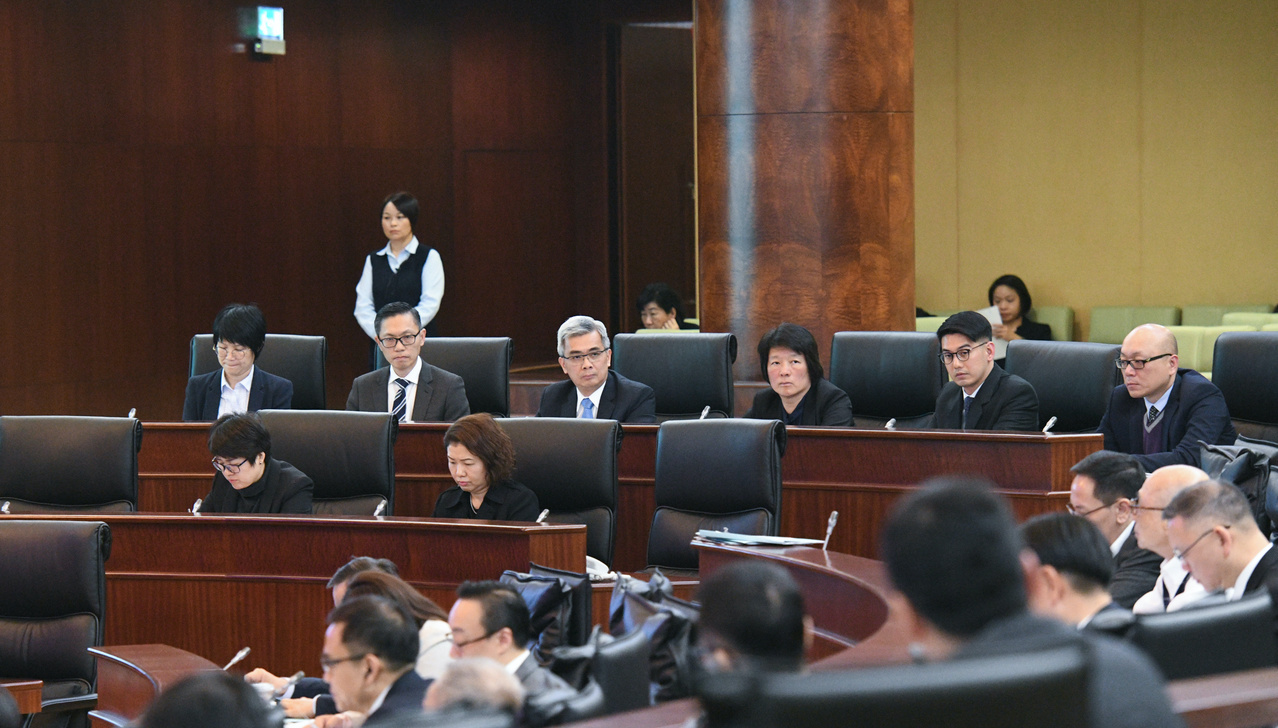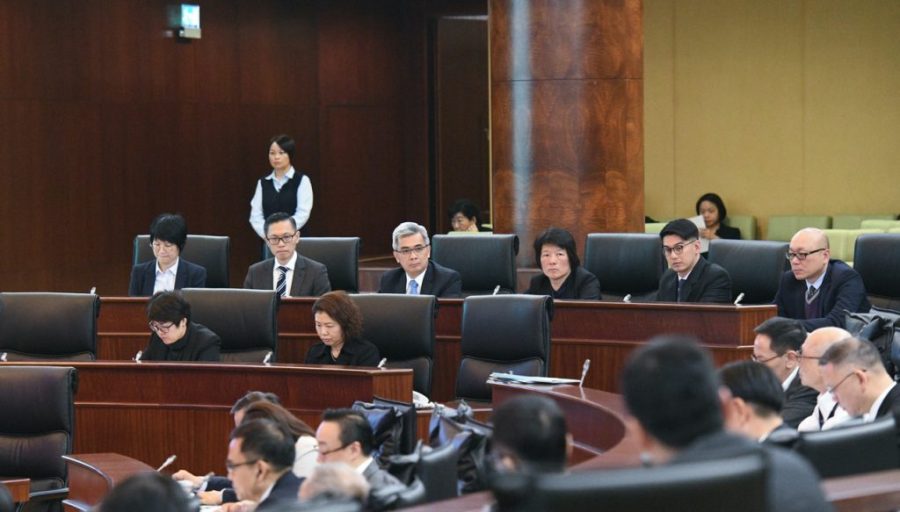The Legislative Assembly (AL) on Monday passed the outline of a government-initiated bill amending the current law regulating the powers, functions and duties of the Judiciary Police (PJ), which proposes to expressly grant the Judiciary Police “exclusive competence” to investigate crimes endangering national security and crimes related to cybersecurity.
According to the bill, the government proposes that the Judiciary Police will have a new division for preventing and investigating terrorist crimes, as well as four new divisions concerning the safeguarding of national security, which will be tasked with the collection of intelligence, the investigation of suspected cases, policy research, and general affairs.
Secretary for Security Wong Sio Chak introduced the outline of the bill during a plenary session in the legislature’s hemicycle on Monday.
The bill will now be passed to one of the legislature’s standing committees for in-depth review before being re-submitted to another plenary session for its final debate and vote.
According to the Macau Post Daily, Wong underlined that both the Law on the Defence of National Security and the Anti-computer Crime Law came into force in 2009, while the Cybersecurity Law took effect last month. Wong said that consequently there was a need to amend the current PJ law, which came into force in 2006, so that the Judiciary Police will be formally given powers and functions to investigate crimes endangering national security and crimes concerning cybersecurity, as well as to monitor the possible risks in the field of cybersecurity.
The local Law on the Defence of National Security was enacted in 2009 based on the Article 23 requirement of the Macau Basic Law.
The local Law on the Defence of National Security, which took effect on March 3, 2009, lists the seven crimes on endangering national security listed by Article 23 of the Macau Basic Law, as well as their penalties.
The seven crimes listed in the local national security law are treason, secession, sedition, subversion against the central government, theft of state secrets, acts against national security committed by foreign political organisations or bodies in Macau, and the establishment of ties by Macau’s political organisations or bodies with foreign political organisations or bodies for the conduct of acts against national security.
Article 7 of the current version of the Judiciary Police Law (Law 5/2006) lists 12 categories of crimes for which the Judiciary Police have exclusive competence to investigate. The bill proposes to add an additional category – crimes endangering national security. For among the 12 existing categories of crimes, the bill also proposes to amend one of them – changing it from covering crimes concerning information technology to crimes concerning information technology and cybersecurity.
The bill proposes to grant the status of criminal police authority to the heads of seven new units to be established under the Judiciary Police: 1) Security Department, 2) Terrorist Crime Alert and Investigation Division, 3) Crime-reporting and Crime Intervention Division), 4) National Security Intelligence Division, 5) National Security Crime Investigation Division, 6) National Security Policy Research Division, and 7) National Security General Affairs Division.
According to Wong, the seven proposed new units will be established by amendments to the current administration regulation (by-law) on the Judiciary Police’s organisational structure and operation – which also came into force in 2006 – after the Legislative Assembly passes the Judiciary Police amendment bill in its second and final vote and it takes legal effect.
According to Wong, the government separately also proposes the setting-up of a Cybersecurity Division under the Judiciary Police.






